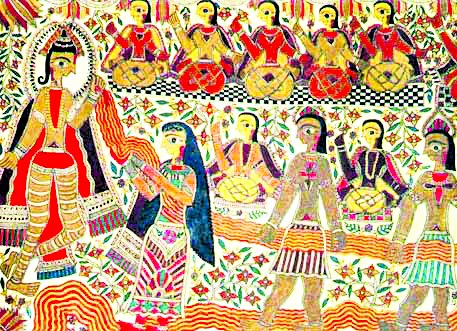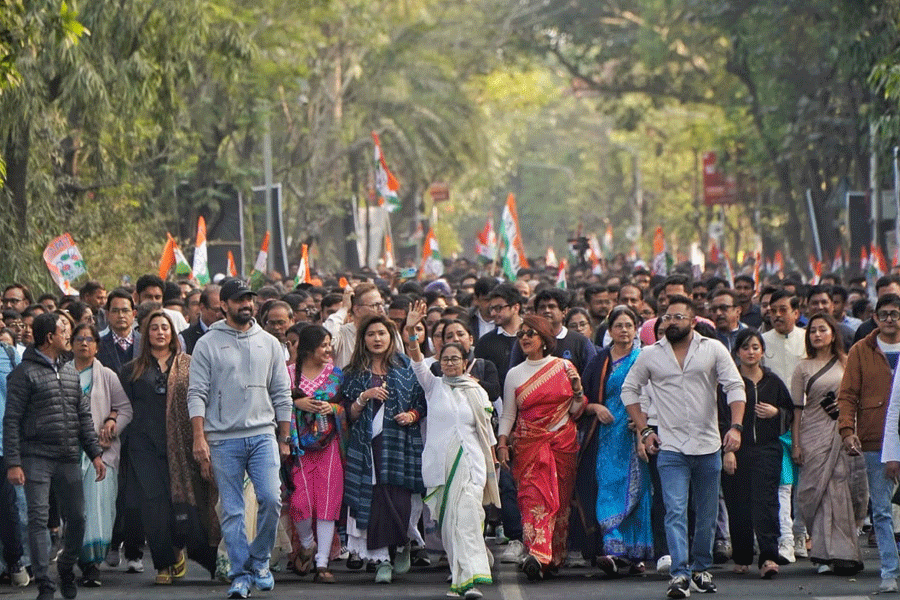
DRAUPADI By Yarlagadda Lakshmi Prasad, Sahitya Akademi, Rs 150
As Yarlagadda Lakshmi Prasad puts it, "... touching the legendary characters is taking a vow to stand on the sharp edge of a sword." When the character is someone like Draupadi, whose detractors possibly outnumber her admirers, the writer's task becomes even more difficult, especially if he wants to be fair. A reading of the 'Submission', which is a sort of a preface by the novelist, reveals the extensive and intensive reading that the author had done before he actually started writing the novel. He read a number of books on the Mahabharat and more than a hundred books in various languages on Draupadi's character.
Not only this, he arranged for some of the material he collected to be heard by elders who had a thorough understanding of the Mahabharat. Friends who were familiar with the epic through cinema and theatre were also consulted. The idea was to present Draupadi as a flesh-and-blood character, with human feelings and emotions, one who could touch the innermost chords of the reader's heart. The same can be said for all the other characters of the novel. The 18-day war, which caused such death and disaster that it did not matter in the end who won and who lost as there was very little difference between victory and defeat, brought everyone down from their pedestals and reunited them in their grief.
It was time for introspection, for looking within. It was also the time for revealing secrets that had lain hidden for a long time. One of them was Karan's real identity, the fact that he was Kunti's eldest son, born out of wedlock. Kunti's revelation troubled Draupadi greatly, as she remembered spurning Karan at her swayamvar on the ground that he was a mere charioteer's son (sutaputra). To quote Prasad, "If Draupadi had come to know that day that Karan was the first-born of Kunti and the eldest brother of her husbands. What kind of fire would have burnt in her heart was known only to her."
Draupadi is perhaps the most complex character in the Mahabharat and Prasad has managed to convey it in his work. One admires his literary skills (not lost in translation) as he describes Draupadi walking behind Arjun and Bhim, a passage that one cannot resist quoting. "Like the blue sky touched by white clouds, Draupadi walked with them. Like the stream yearning to rub the banks, Draupadi walked with them. Like the raindrop dumbfounded by the moist smell of earth, Draupadi walked in their footsteps." The unique coming together of man and nature is conveyed beautifully in these lines.
What was Draupadi's reaction to her polyandrous marriage? Initially, she had thought it was a mistake to marry five men at one point of time. But when there was acceptance from her family and society, she decided to go ahead with it, wondering whether all of them would love her and most importantly, whom she would love the most. Prasad depicts her union with the five brothers very sensitively, keeping her nature as well as those of her husbands, along with their differences, in mind.
Extensive research tends to make a work of fiction more ponderous and less readable. It is to Prasad's credit that his novel never loses its readability, one of the main reasons being that he looks at his characters as human beings with good qualities as well as weak points, not mythological characters or superhuman beings. Even Krishna,who had shown his cosmic power to the Kauravas, tells Draupadi, "Draupadi! My cosmic form is in no way greater than your experience. You surpassed my cosmic form and reached the stage of merging with me."
With the passing away of Krishna, Draupadi, along with the Pandavas, realized that they were going through "... the last chapter of moving history." It was time to go on the ultimate journey, the mahaprasthan. The novel ends with Draupadi's passing away on the journey and "merging with the flute's melody dissolved in the infinite space." There is no regret, no sorrow, no looking back, only a sense of the sublime, of merging with the infinite form of one who was a friend, philosopher and guide. It is a sad yet befitting end to the life of one of the most remarkable and complex characters of the Mahabharat, one who remained an enigma, whom few understood. The novelist manages to portray her multi-faceted character, yet retains his modern/feminist perspective. The novel makes the reader sit up and think about a number of things: love, life, relationships, the ultimate end.
One has to give the translator, K.V. Purneswara Rao, credit for rendering the novel into English in a way that the reader gets a feel of the original, a task that must have posed many challenges.











